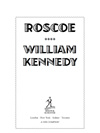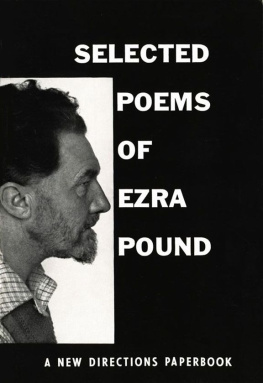Roscoe Pound - An Introduction to the Philosophy of Law
Here you can read online Roscoe Pound - An Introduction to the Philosophy of Law full text of the book (entire story) in english for free. Download pdf and epub, get meaning, cover and reviews about this ebook. year: 1922, publisher: YALE UNIVERSITY PRESS, genre: Romance novel. Description of the work, (preface) as well as reviews are available. Best literature library LitArk.com created for fans of good reading and offers a wide selection of genres:
Romance novel
Science fiction
Adventure
Detective
Science
History
Home and family
Prose
Art
Politics
Computer
Non-fiction
Religion
Business
Children
Humor
Choose a favorite category and find really read worthwhile books. Enjoy immersion in the world of imagination, feel the emotions of the characters or learn something new for yourself, make an fascinating discovery.
- Book:An Introduction to the Philosophy of Law
- Author:
- Publisher:YALE UNIVERSITY PRESS
- Genre:
- Year:1922
- Rating:5 / 5
- Favourites:Add to favourites
- Your mark:
- 100
- 1
- 2
- 3
- 4
- 5
An Introduction to the Philosophy of Law: summary, description and annotation
We offer to read an annotation, description, summary or preface (depends on what the author of the book "An Introduction to the Philosophy of Law" wrote himself). If you haven't found the necessary information about the book — write in the comments, we will try to find it.
An Introduction to the Philosophy of Law — read online for free the complete book (whole text) full work
Below is the text of the book, divided by pages. System saving the place of the last page read, allows you to conveniently read the book "An Introduction to the Philosophy of Law" online for free, without having to search again every time where you left off. Put a bookmark, and you can go to the page where you finished reading at any time.
Font size:
Interval:
Bookmark:
Project Gutenberg's An Introduction to the Philosophy of Law, by Roscoe Pound
This eBook is for the use of anyone anywhere at no cost and with
almost no restrictions whatsoever. You may copy it, give it away or
re-use it under the terms of the Project Gutenberg License included
with this eBook or online at www.gutenberg.net
Title: An Introduction to the Philosophy of Law
Author: Roscoe Pound
Release Date: April 28, 2010 [EBook #32168]
Language: English
*** START OF THIS PROJECT GUTENBERG EBOOK INTRO TO PHILOSOPHY OF LAW ***
Produced by The Online Distributed Proofreading Team at
http://www.pgdp.net (This file was produced from images
generously made available by The Internet Archive)
PHILOSOPHY OF LAW
DELIVERED IN THE WILLIAM L. STORRS
LECTURE SERIES, 1921, BEFORE THE
LAW SCHOOL OF YALE UNIVERSITY,
NEW HAVEN, CONNECTICUT
Philosophy of Law
LONDON: HUMPHREY MILFORD
OXFORD UNIVERSITY PRESS
PRINTED IN THE UNITED STATES OF AMERICA
Second Printing, December, 1924.
Third Printing, May, 1925.
Fourth Printing, April, 1930.
OBLIGATIONS
The present volume is the second work published under the imprint of the Yale University Press in memory of Arthur P. McKinstry, who died in New York City, July 21, 1921. Born in Winnebago City, Minnesota, on December 22, 1881, he was graduated from Yale College in 1905, and in 1907 received the degree of LL.B. magna cum laude from the Yale Law School, graduating at the head of his class. Throughout his career at Yale he was noted both for his scholarship and for his active interest in debating, which won for him first the presidency of the Freshman Union and subsequently the presidency of the Yale Union. He was also Class Orator in 1905, and vice-president of the Yale Chapter of Phi Beta Kappa.
Following his graduation from the School of Law he entered upon the practice of his profession in New York City and early met with the success anticipated for him by his friends,his firm, of which he was the senior member, being recognized at the time of his death as among the most prominent of the younger firms in the city. He was counsel for the Post-Graduate Hospital of New York, the Heckscher Foundation for Children, of which he was also a trustee, and from 1912 to 1914 served as associate counsel to the Agency of the United States in the American and British Claims Arbitration. By his untimely death the bar of the City of New York lost a lawyer outstanding for his ability, common sense, conscientiousness, and high sense of justice; and Yale University lost an alumnus of whom she was proud, who gave freely of his time and thought to his class of 1905, to the development of the Yale School of Law, and to the upbuilding of the Yale University Press, which he served as counsel.
This book is a written version of lectures delivered before the Law School of Yale University as Storrs Lectures in the school year 1921-1922.
A metaphysician who had written on the secret of Hegel was congratulated upon his success in keeping the secret. One who essays an introduction to the philosophy of law may easily achieve a like success. His hearers are not unlikely to find that he has presented not one subject but two, presupposing a knowledge of one and giving them but scant acquaintance with the other. If he is a philosopher, he is not unlikely to have tried a highly organized philosophical apparatus upon those fragments of law that lie upon the surface of the legal order, or upon the law as seen through the spectacles of some jurist who had interpreted it in terms of a wholly different philosophical system. Looking at the list of authorities relied upon in Spencer's Justice, and noting that his historical legal data were taken from Maine's Ancient Law and thus came shaped by the political-idealistic interpretation of the English historical school, it is not difficult to perceive why positivist and Hegelian came to the same juristic results by radically different methods. On the other hand, if he is a lawyer, he will very likely have been able to do no more than attempt none too intelligently to work with the complicated and delicate engines of others upon the toughest and most resistant of legal materials. Until some Anglo-American jurist arises with the universal equipment of Josef Kohler the results of common-law incursions into philosophy will resemble the effort of the editorial writer who wrote upon Chinese Metaphysics after reading in the Encyclopdia Britannica under China and Metaphysics and combining his information. Yet such incursions there must be. Philosophy has been a powerful instrument in the legal armory and the times are ripe for restoring it to its old place therein. At least one may show what philosophy has done for some of the chief problems of the science of law, what stands before us to be done in some of the more conspicuous problems of that science today in which philosophy may help us, and how it is possible to look at those problems philosophically without treating them in terms of the eighteenth-century natural law or the nineteenth-century metaphysical jurisprudence which stand for philosophy in the general understanding of lawyers.
Roscoe Pound.
Harvard Law School,
October 25, 1921.
| I. | The Function of Legal Philosophy |
| II. | The End of Law |
| III. | The Application of Law |
| IV. | Liability |
| V. | Property |
| VI. | Contract |
| Bibliography | |
| Index |
For twenty-four hundred yearsfrom the Greek thinkers of the fifth century B. C., who asked whether right was right by nature or only by enactment and convention, to the social philosophers of today, who seek the ends, the ethical basis and the enduring principles of social controlthe philosophy of law has taken a leading rle in all study of human institutions. The perennial struggle of American administrative law with nineteenth-century constitutional formulations of Aristotle's threefold classification of governmental power, the stone wall of natural rights against which attempts to put an end to private war in industrial disputes thus far have dashed in vain, and the notion of a logically derivable super-constitution, of which actual written constitutions are faint and imperfect reflections, which has been a clog upon social legislation for a generation, bear daily witness how thoroughly the philosophical legal thinking of the past is a force in the administration of justice of the present. Indeed, the everyday work of the courts was never more completely shaped by abstract philosophical ideas than in the nineteenth century when lawyers affected to despise philosophy and jurists believed they had set up a self-sufficient science of law which stood in no need of any philosophical apparatus.
In all stages of what may be described fairly as legal development, philosophy has been a useful servant. But in some it has been a tyrannous servant, and in all but form a master. It has been used to break down the authority of outworn tradition, to bend authoritatively imposed rules that admitted of no change to new uses which changed profoundly their practical effect, to bring new elements into the law from without and make new bodies of law from these new materials, to organize and systematize existing legal materials and to fortify established rules and institutions when periods of growth were succeeded by periods of stability and of merely formal reconstruction. Such have been its actual achievements. Yet all the while its professed aim has been much more ambitious. It has sought to give us a complete and final picture of social control. It has sought to lay down a moral and legal and political chart for all time. It has had faith that it could find the everlasting, unchangeable legal reality in which we might rest, and could enable us to establish a perfect law by which human relations might be ordered forever without uncertainty and freed from need of change. Nor may we scoff at this ambitious aim and this lofty faith. They have been not the least factors in the power of legal philosophy to do the less ambitious things which in their aggregate are the bone and sinew of legal achievement. For the attempt at the larger program has led philosophy of law incidentally to do the things that were immediately and practically serviceable, and the doing of these latter, as it were
Font size:
Interval:
Bookmark:
Similar books «An Introduction to the Philosophy of Law»
Look at similar books to An Introduction to the Philosophy of Law. We have selected literature similar in name and meaning in the hope of providing readers with more options to find new, interesting, not yet read works.
Discussion, reviews of the book An Introduction to the Philosophy of Law and just readers' own opinions. Leave your comments, write what you think about the work, its meaning or the main characters. Specify what exactly you liked and what you didn't like, and why you think so.










